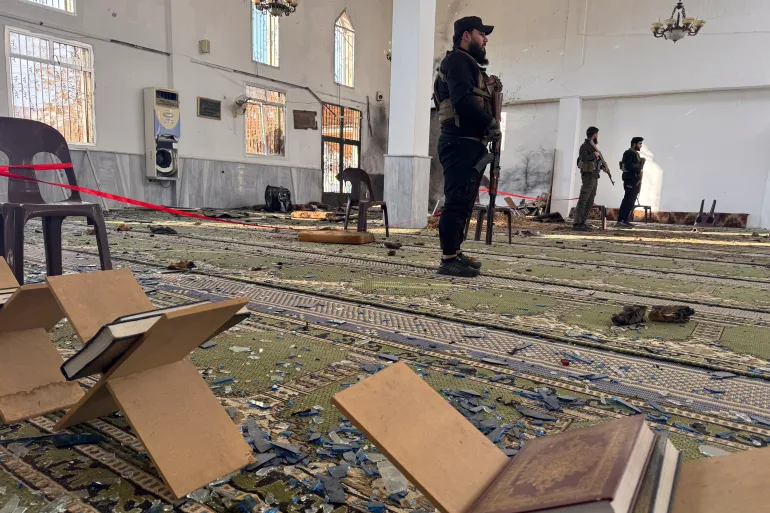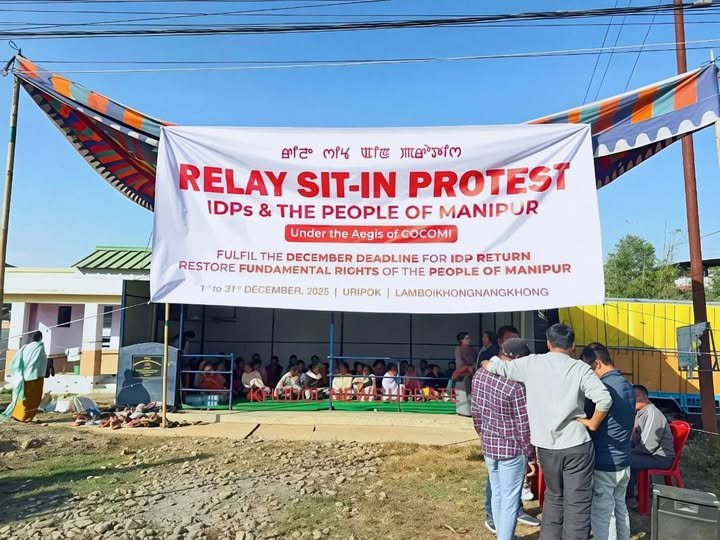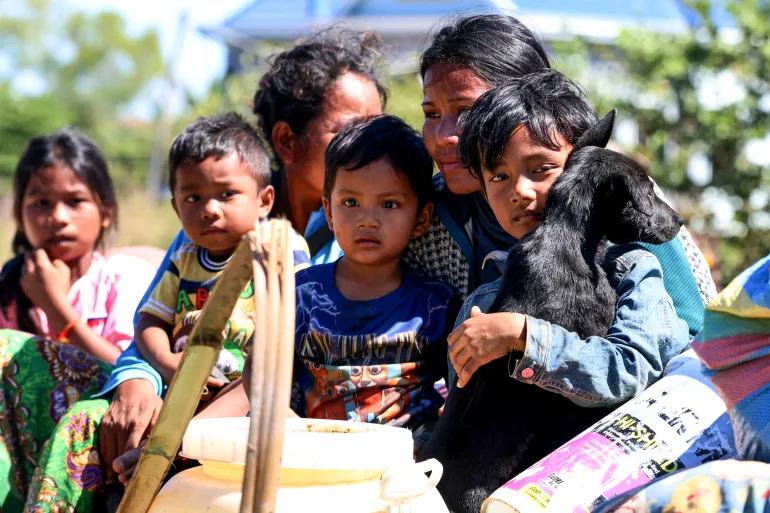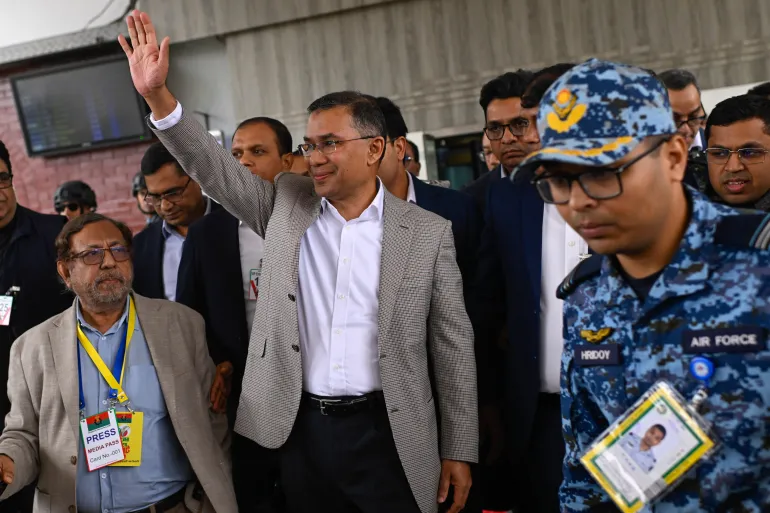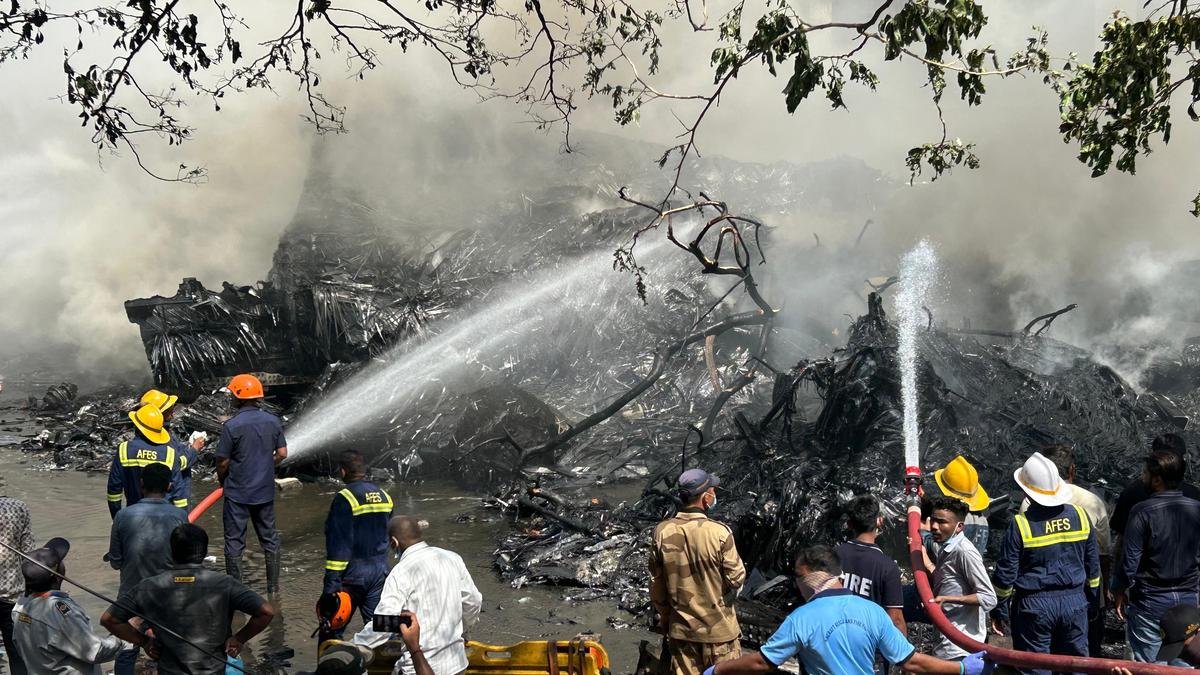Israeli Airstrikes Rattle Damascus: High-Profile Targets Hit, Tensions Surge in Region
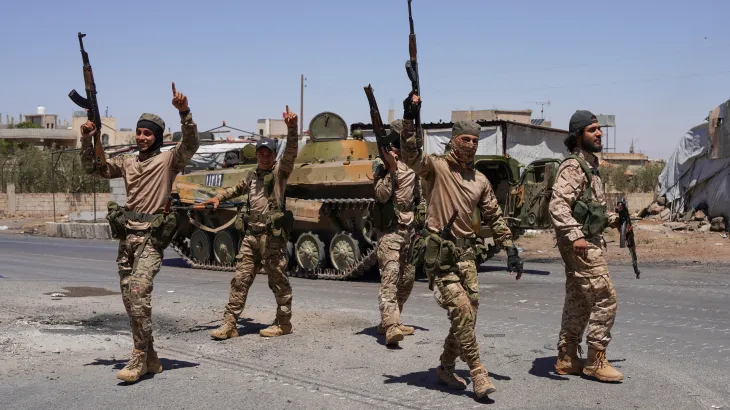
In a significant escalation of regional hostilities, the Israeli Air Force launched a series of precision airstrikes on central Damascus on July 16, 2025, targeting some of Syria’s most critical state and military infrastructures. Among the buildings struck were the Syrian Defence Ministry, the Army General Staff headquarters, and sensitive areas near the presidential palace. These strikes mark one of the most aggressive Israeli operations deep inside Syrian territory in recent years.
According to reports from Syrian state media (SANA) and corroborated by international agencies such as Reuters and The Washington Post, at least three individuals were killed and 34 others wounded, including both civilians and security personnel. The strikes also caused significant material damage to infrastructure in the highly fortified diplomatic and administrative quarters of Damascus.
The Israeli Defense Forces (IDF), while not immediately confirming the operation as is typical of its policy regarding foreign strikes later issued a veiled acknowledgment. In a televised address, Prime Minister Benjamin Netanyahu stated that Israel “will not tolerate the encroachment of hostile elements near its borders,” referring indirectly to Syrian troop movements in the southern province of Sweida, where clashes between Druze militias, Bedouin tribes, and government forces have recently escalated.
Analysts view this strike as a strategic warning to the Assad regime and its allies, including Iran-backed militias, to steer clear of areas near the Golan Heights and avoid actions that could endanger Israel's northern frontier.
“This is not just about retaliation,” said Israeli security analyst Avi Melamed. “This is about reshaping red lines. The Damascus strike was a symbolic message: Israel is prepared to act, not just at the border but at the heart of Assad’s power base.”
Eyewitnesses in Damascus described the assault as swift and unexpected, with loud explosions lighting up the night sky in the usually well-defended city center. Hospitals across the capital received dozens of casualties, with reports of children and elderly among the injured.
The Organisation for the Prohibition of Chemical Weapons (OPCW), which had ongoing operations in the capital, suspended its activities due to safety concerns, citing potential structural hazards and security breakdowns near key facilities.
The United States, while reiterating its support for Israel’s right to self-defense, expressed unease with the scale of the assault. “We urge restraint and adherence to international law,” a State Department spokesperson told Reuters, signaling a desire to prevent further regional destabilization. Other countries, including Russia and Iran, condemned the attack, accusing Israel of “state terrorism” and threatening “appropriate responses.”
The backdrop to the airstrikes lies in the spiraling situation in Sweida, a predominantly Druze province in southern Syria. In recent weeks, Sweida has seen violent clashes between local self-defense groups and government forces, sparked by land disputes, political marginalization, and fears of forced conscription.
Israel, home to a significant Druze population, has taken a proactive stance in advocating for the safety of Druze communities on both sides of the border. Netanyahu, in a rare address specifically aimed at Israeli Druze citizens, urged them not to cross into Syria to fight but assured them that their kin would be “protected by any means necessary.”
This growing sectarian dimension has complicated the Israeli-Syrian dynamic, previously focused primarily on Iranian entrenchment in Syria. Observers now warn of a new layer of complexity, where ethnic and tribal alliances might pull regional powers into deeper confrontation.
While a temporary ceasefire has reportedly been brokered in Sweida with help from Arab League mediators, the situation remains volatile. The Syrian military has pulled back from several checkpoints, allowing Druze groups to assume local control. However, the possibility of further Israeli strikes looms large should these security lines be violated again.
“This is the most significant Israeli strike on Damascus in over a decade,” said Lina Khatib, a Middle East expert at Chatham House. “It underscores how Israel is recalibrating its military strategy post-Gaza and post-Hezbollah fronts, placing greater weight on its northern flank.”
For now, the residents of Damascus remain on edge, with heightened security alerts and rumors of further airstrikes circulating. As diplomacy struggles to catch up with military realities, the risk of wider conflict in the Levant grows ever more tangible.
According to reports from Syrian state media (SANA) and corroborated by international agencies such as Reuters and The Washington Post, at least three individuals were killed and 34 others wounded, including both civilians and security personnel. The strikes also caused significant material damage to infrastructure in the highly fortified diplomatic and administrative quarters of Damascus.
The Israeli Defense Forces (IDF), while not immediately confirming the operation as is typical of its policy regarding foreign strikes later issued a veiled acknowledgment. In a televised address, Prime Minister Benjamin Netanyahu stated that Israel “will not tolerate the encroachment of hostile elements near its borders,” referring indirectly to Syrian troop movements in the southern province of Sweida, where clashes between Druze militias, Bedouin tribes, and government forces have recently escalated.
Analysts view this strike as a strategic warning to the Assad regime and its allies, including Iran-backed militias, to steer clear of areas near the Golan Heights and avoid actions that could endanger Israel's northern frontier.
“This is not just about retaliation,” said Israeli security analyst Avi Melamed. “This is about reshaping red lines. The Damascus strike was a symbolic message: Israel is prepared to act, not just at the border but at the heart of Assad’s power base.”
Eyewitnesses in Damascus described the assault as swift and unexpected, with loud explosions lighting up the night sky in the usually well-defended city center. Hospitals across the capital received dozens of casualties, with reports of children and elderly among the injured.
The Organisation for the Prohibition of Chemical Weapons (OPCW), which had ongoing operations in the capital, suspended its activities due to safety concerns, citing potential structural hazards and security breakdowns near key facilities.
The United States, while reiterating its support for Israel’s right to self-defense, expressed unease with the scale of the assault. “We urge restraint and adherence to international law,” a State Department spokesperson told Reuters, signaling a desire to prevent further regional destabilization. Other countries, including Russia and Iran, condemned the attack, accusing Israel of “state terrorism” and threatening “appropriate responses.”
The backdrop to the airstrikes lies in the spiraling situation in Sweida, a predominantly Druze province in southern Syria. In recent weeks, Sweida has seen violent clashes between local self-defense groups and government forces, sparked by land disputes, political marginalization, and fears of forced conscription.
Israel, home to a significant Druze population, has taken a proactive stance in advocating for the safety of Druze communities on both sides of the border. Netanyahu, in a rare address specifically aimed at Israeli Druze citizens, urged them not to cross into Syria to fight but assured them that their kin would be “protected by any means necessary.”
This growing sectarian dimension has complicated the Israeli-Syrian dynamic, previously focused primarily on Iranian entrenchment in Syria. Observers now warn of a new layer of complexity, where ethnic and tribal alliances might pull regional powers into deeper confrontation.
While a temporary ceasefire has reportedly been brokered in Sweida with help from Arab League mediators, the situation remains volatile. The Syrian military has pulled back from several checkpoints, allowing Druze groups to assume local control. However, the possibility of further Israeli strikes looms large should these security lines be violated again.
“This is the most significant Israeli strike on Damascus in over a decade,” said Lina Khatib, a Middle East expert at Chatham House. “It underscores how Israel is recalibrating its military strategy post-Gaza and post-Hezbollah fronts, placing greater weight on its northern flank.”
For now, the residents of Damascus remain on edge, with heightened security alerts and rumors of further airstrikes circulating. As diplomacy struggles to catch up with military realities, the risk of wider conflict in the Levant grows ever more tangible.
